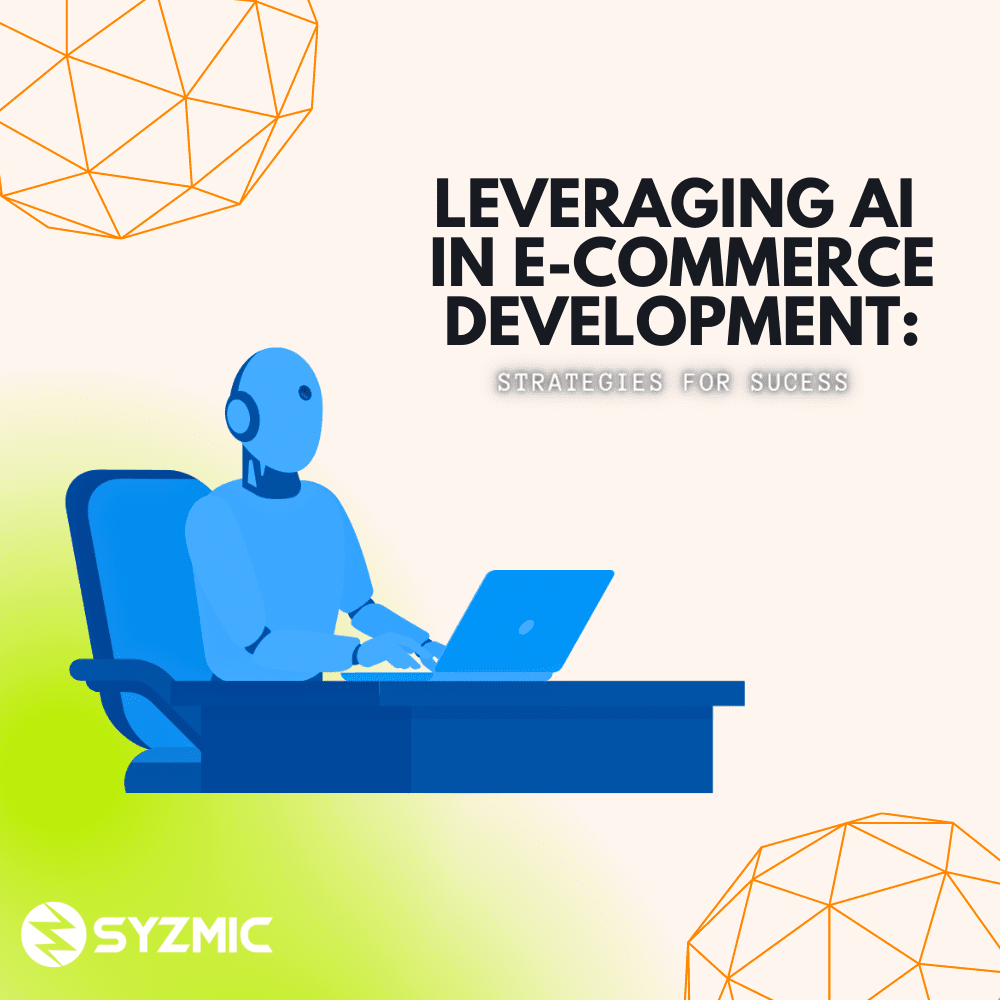In the ever-evolving landscape of eCommerce, businesses are constantly seeking innovative ways to gain a competitive edge. One such approach that has gained significant traction is leveraging Artificial Intelligence (AI) in eCommerce development. By harnessing the power of AI technologies, businesses can enhance user experiences, optimize operations, and drive sales growth. In this blog post, we will explore key strategies for successfully incorporating AI into eCommerce development and unlocking the full potential of this groundbreaking technology.
Personalization and Recommendation Systems:
AI-powered recommendation systems have revolutionized the way eCommerce platforms engage with customers. By analyzing user behavior, preferences, and purchase history, AI algorithms can offer personalized product recommendations, increasing the likelihood of conversions. Implementing a robust recommendation engine can significantly enhance the customer journey and drive higher engagement, leading to increased sales and customer satisfaction.
Chatbots and Virtual Assistants:
Integrating AI-powered chatbots and virtual assistants into eCommerce platforms has become increasingly popular. These intelligent bots can provide real-time customer support, answer queries, offer product suggestions, and even process transactions. By automating routine tasks and providing personalized assistance 24/7, chatbots enhance customer experiences and reduce response times, ultimately improving customer satisfaction and boosting conversion rates.
Demand Forecasting and Inventory Management:
AI algorithms excel at analyzing vast amounts of data, making them invaluable for demand forecasting and inventory management. By leveraging machine learning techniques, businesses can accurately predict consumer demand patterns, optimize stock levels, and minimize inventory costs. AI-driven inventory management systems help prevent stockouts, streamline supply chain processes, and ensure products are readily available to meet customer demands.
Fraud Detection and Security:
AI algorithms have proven instrumental in detecting fraudulent activities and enhancing security measures in eCommerce. Machine learning models can analyze patterns and identify potential fraud risks, such as suspicious transactions or account breaches. By implementing AI-based fraud detection systems, businesses can protect themselves and their customers, mitigating financial losses and maintaining trust in their online platforms.
Data-Driven Marketing and Customer Insights:
AI can unlock valuable insights from vast amounts of customer data, enabling businesses to create data-driven marketing strategies. By analyzing customer behavior, preferences, and demographics, businesses can optimize marketing campaigns, personalize messaging, and target specific customer segments effectively. AI-powered analytics tools provide actionable insights, allowing businesses to make informed decisions and achieve better marketing ROI.
Incorporating AI into eCommerce development can be a game-changer for businesses looking to stay ahead in the competitive digital landscape. By leveraging the power of AI for personalization, chatbots, demand forecasting, fraud detection, and data-driven marketing, businesses can enhance user experiences, improve operational efficiency, and drive revenue growth. To successfully harness AI’s potential, it is crucial for businesses to carefully plan and implement these strategies, keeping customer needs and business objectives at the forefront. Embracing AI in eCommerce development is not just a trend; it’s a strategic move that can reshape the way businesses engage with customers and achieve long-term success in the ever-evolving eCommerce ecosystem.








0 Comments